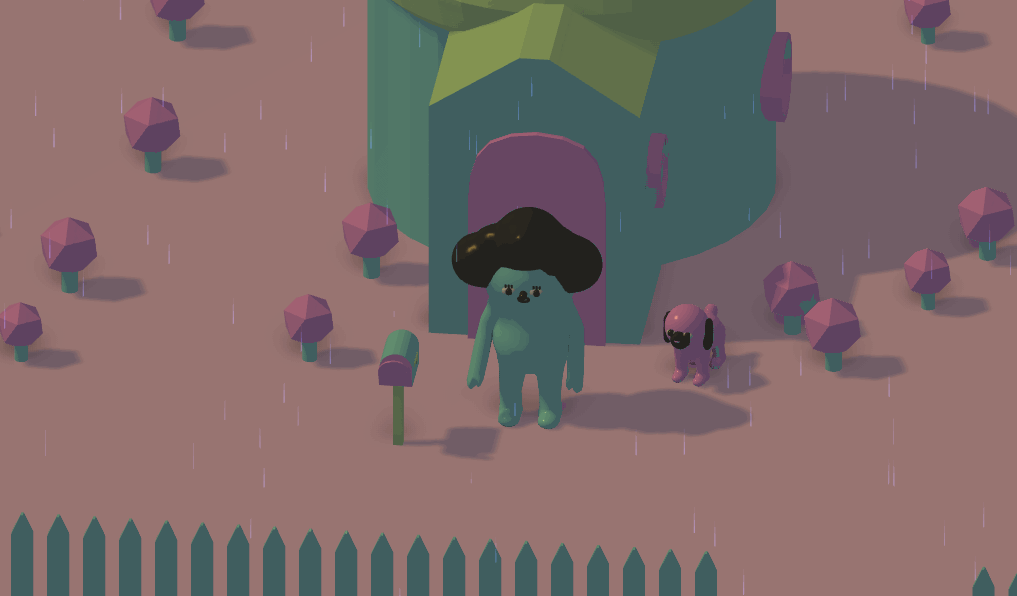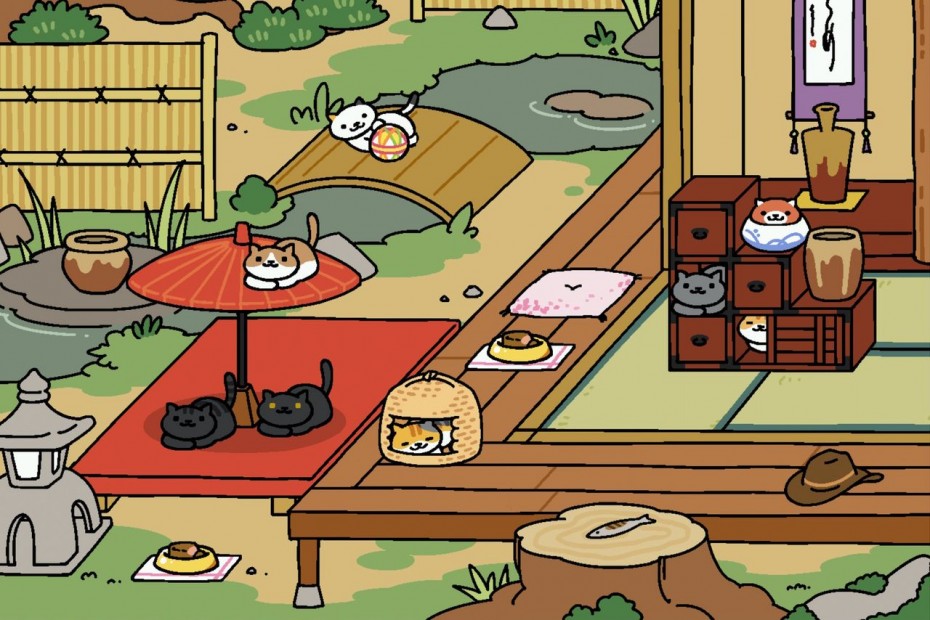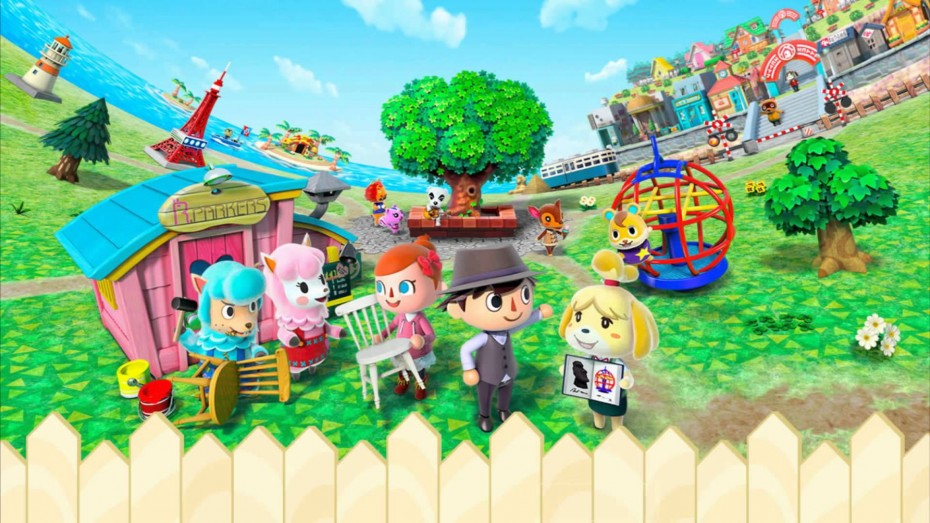An Interest In:
Web News this Week
- April 19, 2024
- April 18, 2024
- April 17, 2024
- April 16, 2024
- April 15, 2024
- April 14, 2024
- April 13, 2024
The best games about home are the ones that make you leave it

We're in the midst of the rainy season in Portland, Oregon when a thick, soporific sheet of gray wraps itself around the city like a wet wool blanket and doesn't let go till Spring. The moment I step outside my door, I realize I've made a mistake: the sky has opened up, and raindrops are spilling out so quickly that I instantly abandon my plan to go running, turn on my heel and head back inside.
When I sit down at my computer and open the game Lovely Weather We're Having, it's raining there too. It's not a coincidence. The game is designed to mirror the weather outside your window, mapping the real-life sunshine, rain and snow of the world around you to a surreal neighborhood that looks sculpted from clay and littered with candy-colored trees and geometric shapes.
You begin the game standing outside of a house—your house, presumably—but you can't go inside. That's because this is "a game about going outside," or at least that's what it says on the tin. But I nonetheless think of Lovely Weather We're Having as a game about home, not just because it creates a place for your digital avatar to live, but because it simulates in one of the most pleasurable things about having a home: the moment when you return to it. It encourages you to leave, so that you can have the satisfaction of coming back.
https://vimeo.com/136570202Wandering around your surreal little neighborhood is a very sensory experience: grasses rustle, mushrooms sing at your touch, and stones make satisfying, rubbery thunks when I kick them. There's a puppy that always trails a few steps behind you, whose fur changes color with the temperature. If you wait till evening, shadows will fall over your strange little town, and many of your neighbors will go to sleep.
Admittedly, there's not a lot to do in Lovely Weather We're Having. You can talk to the locals, wander around through the modulating meteorology and see what might have changed along with the weather. That's it. When you tire of it, you stop playing.
But that's also part of its charm. It's not a game designed to be played for eight hours straight; it's one where you check in, see what's new, and check out again. It encourages you to step away, so that when time has passed you can experience the pleasure of the moment of return—the comfort of what is familiar and the novelty of what has changed.
The same could be said of Neko Atsume, the unexpectedly popular cat collecting game where you leave out food and toys on a digital porch to attract a menagerie of digital felines. But here's the catch: the cats won't appear until you leave. You can check back in later, though, and you should, because that's exactly when the kitties will show up to curl up in cardboard boxes and bat at balls of yarn. If you miss them—well, you miss them.
Lovely Weather We're Having has even more in common with Animal Crossing, another neighborhood simulator whose charm comes from its parallels to real life. Your town and its anthropomorphic residents live in real-time, which means that if a llama in the game says her shop closes at 10 PM, then it really does.
If a notice says that a festival is taking place in your town on a specific date, you'd better turn on the game that day, or it'll go on without you. Send a friend a present through the Animal Crossing post office, and it won't reach its destination for hours, or even till the next day. It's not because the game can't deliver it sooner, of course. It's because waiting for it not only makes its eventual arrival feel more gratifying, but also more organic.

Unlike the somewhat nefarious delays of pay-or-wait games that encourage you to drop real-life cash to fast forward through waiting periods—I'm looking at you, Farmville—the passage of time in what I think of as homecoming games isn't an artificial constraint designed to frustrate or manipulate you for profit. Instead, it's a far more natural rhythm coded into your play, and one that implies something important about how we interact with our intimate spaces: that the spaces we create from them each time we leave them are part of what gives them meaning.
There's something comforting about the way these games mirror both everyday rituals of departure and return, the rhythms and cycles of change that thread through our real lives. The sun rises and sets, the weather changes, things and people grow and shift and disappear in the moments when we aren't looking. We measure those changes by holding them up against the yardstick of the familiar, against the backdrop of the physical structures that shelter us and anchor us in the world.
Instead of trying to hold you in their thrall for as long as possible, homecoming games create spaces where time has to pass in order for, well time to pass. You plant some seeds, send some mail, see what's new with your neighbors, put out food for the catsand then go back to the real world and live your life. It's soothing and gratifying in a way that a more frenetic life simulator like The Sims will never be, specifically because The Sims encourages you to fast forward through the moments when your character leaves the house or goes to sleep, eliding over any interval of rest or absence. It's easy to feel like your avatar never really stops—and by extension, neither do you. Often, it means you won't want to.
Take it from someone who works from her home, and often finds herself in deeply dysfunctional rhythms: home shouldn't be the place where you spend all your time, because when it is, it's a lot less fun to be there. The pleasures of home—both in games and in life—lie not in it being a place you never want to leave, but rather in being a place you want to leave, because it makes it so much more satisfying to come back to again and again and again.
Original Link: http://feeds.boingboing.net/~r/boingboing/iBag/~3/pEe5Jh4rPZ8/homecoming-games.html


